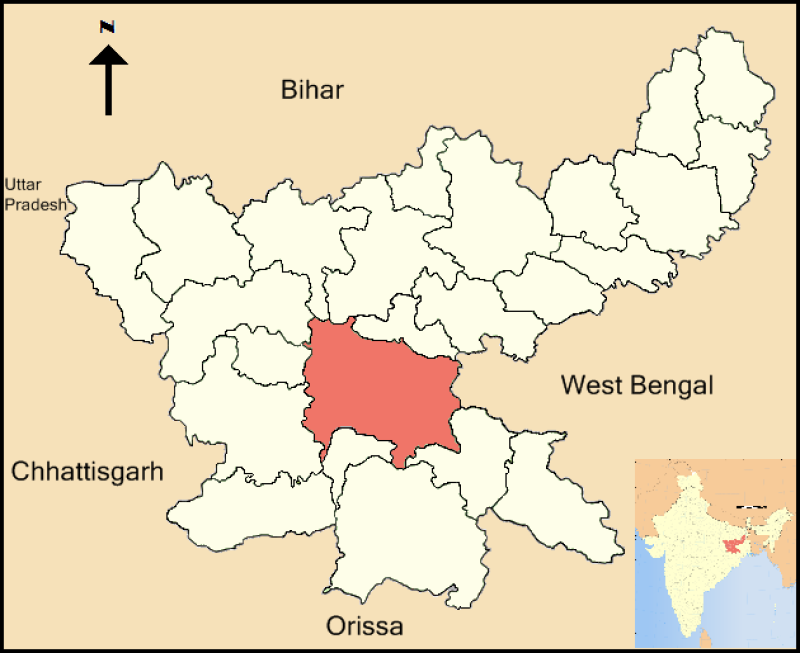

A map of Jharkhand state in India. The portion in dark red marks Ranchi District, in which the Jharkhand Legislative Assembly is located.
A state government in India has passed a contentious bill forbidding the coercion of conversion into another religion, which some say can be abused to harass religious minority groups.
The bill, known as the "Freedom of Religion Bill 2017,' was passed by the Jharkhand Assembly on Saturday, and now will be sent for the governor's approval.
Section 3 of the bill forbids the attempt to convert anyone "by use of force or by allurement or by any fraudulent means," those who violate the bill could be required to pay a fine of 50,000 Rupees, be imprisoned for three years, or both. Minors, women, or people from the Scheduled Caste or Scheduled Tribe could be required to pay a fine of up to 10,000 Rupees, be imprisoned for four years, or both.
Those who voluntarily wish to convert must first receive permission from the deputy commissioner, who would then investigate what the circumstances were surrounding the conversion, according to The Telegraph.
Six other states in India have similar laws, according to the International Christian Concern (ICC), a human rights group focusing on religious persecution. However, a lack of clarity on the definition of certain terms in the laws, such as "coercion" or "force" has led radical Hindu groups to abuse the laws against non-Hindu groups including Christians, the ICC said.
"Often, these laws provide an easy excuse for radicals to attack Christian leaders with impunity," said William Stark, the regional manager for the ICC. "One simply needs to claim the pastor was forcefully converting an individual following an assault. As a result, instead of the pastor's assailants being arrested, it's the assailed pastor who is arrested by police following an attack."
"With attacks on Christians skyrocketing, the adoption of a law that would only incite more violence seems to be another step away from India enforcing religious freedom for all," Stark added.
Stephen Marandi, the senior MLA of the Jharkhand Mukti Morcha (JMM) party, described the bill as being "fraught with problems," and argued that the constitution already protects religious freedom, and questioned whether the bill was necessary, the Indian Express reported. The bill can be "misused to harass people," Marandi added.
Meanwhile, those who support the bill argue that people in poverty have been forced to convert, and that the bill is a measure to prevent that from happening.
"We haven't banned wishful religious conversions. It only aims to tighten the noose round the neck of individuals and organisations who are taking advantages of ignorance and poverty of poor people, mainly tribals and dalits living in remote areas," Raghubar Das, the chief minister, told The Telegraph.
Opponents such as JMM Executive President Hemant Soren argued: "The way the bill has been advertised is wrong."
"I have studied in a missionary-run school "¦ why did I not change my religion?" Soren was quoted as saying by Gulf News.



















